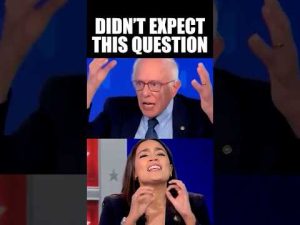**Zoran Mandani: A Political Rise with Radicals in His Corner**
In the bustling political arena of New York, a new name has emerged, and it’s Zoran Mandani. His campaign for city leadership has raised eyebrows and a few alarm bells among those who are paying attention to the connections he has forged along the way. It seems that while Mandani may aim for the highest office in the city, his affiliations with certain controversial figures suggest a concerning trajectory. As his supporters cheer him on, many are left wondering: just who is backing Mandani, and what does that say about his ambition?
Mandani’s journey to power is anything but traditional. His political ascent has been heavily influenced by figures who hold some radical viewpoints. A shining example is his relationship with Imam Muhammad Albar of the Islamic Society of Bay Ridge, known for his extreme rhetoric against Israel. Just months after Imam Albar’s ominous public prayers for the destruction of Israel, Mandani paid him a visit, indicating an alliance fueled by mutual disdain for the United States. This connection raises questions about what Mandani stands for and where his loyalties truly lie. After all, it’s one thing to campaign on the city streets; it’s quite another to have relationships that echo controversial ideologies.
But it doesn’t stop there. Mandani’s political journey also has ties to other notable imams who aren’t exactly known for their moderate perspectives. One such figure is Imam Siraj Wahaj, a man with a history of opposing the U.S. government and advocating for the implementation of Sharia law. Mandani called Wahaj one of the leading Muslim voices in America, which has led many to scrutinize what that endorsement means for his political platform. After all, all’s fair in love and politics, or is it? When those in your inner circle have a past filled with extremist ties, potential voters might have cause for concern.
Adding to this tangled web is Imam Talib Abdur Rashid, a figure who has defended individuals linked to terrorist organizations such as al-Qaeda and the Palestinian Islamic Jihad. Rashid not only shares a history of controversial associations, but he also co-founded a prominent Muslim organization alongside the aforementioned Wahaj. This deeper dive into Mandani’s connections suggests that his campaign isn’t about building bridges, but rather aligning with factions that many would prefer to keep at arm’s length. Hosting events alongside radical voices doesn’t exactly scream unity, does it?
As the political landscape continues to shift, Mandani’s rise also raises important questions about the values and ideals being championed in the pursuit of power. With ties to individuals who have openly expressed contempt for American principles, some may wonder if he’s seeking to use politics as a tool for furthering ideologies at odds with the very fabric of the nation. Politicians often leverage connections to strengthen their campaigns, but when those connections promote views that are detrimental to society as a whole, voters must tread cautiously.
Ultimately, Zoran Mandani’s climb to political prominence is one that is not without controversy. His alliances with radical figures could have serious implications for his campaign and, potentially, the future of New York City. As he continues to strive for leadership, many are left pondering whether he can truly represent the diverse and democratic landscape of the city, or if his connections might lead New Yorkers down a path that strays far from the values of liberty and justice for all. For now, the question remains: will voters choose to look beyond the glossy campaign ads and peer into the depths of what Mandani stands for? Only time will tell.







